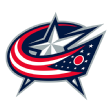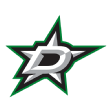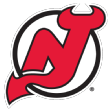Long gone are the days when only a limited number of productive performers on the blue line brought any real value to your fantasy roster. The inclusion of defensive categories like blocked-shots in conventional fantasy competition renders NHL defenders more relevant than ever before. Just like in real life, well-rounded D-men - those who pitch in goals, assists, power-play points, shots on goal, blocked shots, and hits - can influence the difference between victory and defeat, regardless of which style of fantasy competition you prefer. Other categories such as time-on-ice and plus/minus can also help dress up a defenseman as a highly coveted fantasy commodity.
Strategy
While a total of 33 regular defenders averaged 2.0 fantasy points/game in ESPN's standard game in 2022-23, only seven hit or exceeded the 2.5 mark. Which means, if you're not able to draft an elite talent (pair of examples below) early on in your draft, there's little harm in waiting a bit, while stocking up on more dangerous firepower up front, or ensuring you're in good shape in net.
Number of lineup spots, and how they're divided between forwards and defensemen, also helps determine how to draft your blue line. A closer split - seven forwards and five defenders, for instance - demands a more aggressive approach in selecting the best blueliners available. But never at the expense of more explosive centers/wingers who generally pay out greater fantasy dividends altogether. In conventional leagues, my habit is to secure a top-10 defender early, use later rounds to snag mid-tier candidates with upside, then pad my roster with wild cards and super-sleepers as the draft nears conclusion.
Top-tier defensemen I like

Roman Josi, Nashville Predators (No. 2 defenseman)
In my estimation, two fantasy defenseman sit perched in a tier above the rest, as ultra-elite assets who can't help but contribute, game in and out. Colorado's Cale Makar is one, Nashville's veteran the other. No disrespect to Alex Pietrangelo, Rasmus Dahlin, Adam Fox and a host of other very good blue-line commodities, but Josi and/or Makar are the only two who might sway me away from drafting a first-class asset up front. They're so appreciably consistent. While no defenseman averaged more points/game (2.9) than Josi in ESPN standard competition this past season - by shooting, scoring, and blocking more shots than most - only five forwards managed that feat. In fact, the 33-year-old finished third in total fantasy points amongst blueliners, despite playing only 67 contests. And he feels fully fit again ahead of 2023-24.

Alex Pietrangelo, Vegas Golden Knights (No. 7)
Averaging 2.42 blocked shots/game, Pietrangelo also contributed 54 points through only 73 contests in 2022-23 - the large majority of them at even-strength. 'Josi-like' in that he checks all fantasy boxes in conventional leagues, the Knights' blueliner could very well hit the 60-mark for the first time in his NHL career, while averaging more than 24 minutes/game through a full, healthy season. That the veteran jives so well with coach Bruce Cassidy is just one more intangible factor to appreciate ahead of this fresh campaign.
See also:
Rasmus Dahlin, Buffalo Sabres (No. 4)
Mid-tier defensemen to target

Zach Werenski, Columbus Blue Jackets (No. 19)
He's back! After losing most of 2022-23 to a nasty shoulder injury requiring surgery, the Blue Jackets' No. 1 defender is healthy and revved to go. ("My shoulder's all good," Werenski said, without reservation, in July.) Now the 26-year-old can get back to the business of notching near 60 points - for which he's been on pace in the past - and helping his squad win more than 25 games. This is one of the league's best blueliners, in his prime, who eats up heavy minutes and loves to shoot on net. One, again, who's "itching" - his choice of term - to get back to it. He's rather high on my own fantasy target list.

Miro Heiskanen, Dallas Stars (No. 21)
Characterizing the Stars' blueliner as a "mid-tier" asset feels a bit silly to me, considering he contributed 73 points on 206 shots through 79 games in 2022-23, while averaging 25:29 minutes/contest. Perhaps I'm drafting a handful of defenders ahead of Heiskanen in most conventional fantasy leagues - six or seven, maybe - but certainly not twenty. The 24-year-old is an authentic NHL star in the making, fantasy and otherwise.
See also:
Evan Bouchard, Edmonton Oilers (No. 25)
Quinn Hughes, Vancouver Canucks (No. 27)
Luke Hughes, New Jersey Devils (No. 28)
Starting your own league is easier than ever! Set your league size, select your keepers, and invite your friends to start playing. Sign up for free today be the commish!
Key sleepers

Shayne Gostisbehere, Detroit Red Wings (No. 47)
There's little question the veteran offensive-defenseman will get the chance to anchor the power play for his newest team, but which unit? Don't be too surprised if Gostisbehere earns a shot, at minimum, at supplanting Moritz Seider on the club's top collective, joining Dylan Larkin, David Perron, and fellow Detroit newbie Alex DeBrincat. If not, he's still set to see valuable minutes with the second unit. The former Flyer is only a season removed from potting 51 points in Arizona, a handful of years after putting up his best numbers in Philadelphia. Signed to just the one year with the Red Wings, Gostisbehere would benefit most from enjoying the most productive season possible. A notion that isn't lost on the 30-year-old, trust me.

Sean Durzi, Arizona Coyotes (No. 49)
I very much like this new gig for the young defenseman, who's still coming into his own. Out from under Drew Doughty's formidable shadow cast in Los Angeles, the 24-year-old now has the opportunity to stretch himself into a top performer in Arizona. The No. 1 power-play job appears Durzi's to lose to start the season, with J.J. Moser prematurely slated on the secondary unit. I'd like to see the third-year skater line up alongside Matt Dumba, another import, at even strength, but there's no guarantee that pairing earns a proper whirl. What does seem assured is that Durzi will garner a considerable bump in minutes in the desert, affording him the greater prospect to build on last season's rate of 0.53 points/game and 1.97 blocked-shots/game. This young man has the wherewithal to perform as a top-20 blue-line asset as early as this year.

Jake Sanderson, Ottawa Senators (No. 106)
My deep-league, fantasy super-sleeper is poised to be Ottawa's highest paid defenseman in a year's time, eclipsing Thomas Chabot's annual paycheck by 50k. Then for another seven calendars after that. That's a lot of dough ($64.4-million) - never mind the hefty commitment - which means the Senators already really like what they see from the just-turned 21-year-old. And who can blame them? Averaging nearly 22 minutes/contest in his rookie turn, Sanderson was a go-to asset on the penalty kill, pitched in on the power play, blocked 147 shots, and put up 32 points altogether. Just one year out of college. With a view to where we see the salary cap headed, the fifth-overall draft pick (2020) may be considered a bargain before we know it. I'm all over drafting him in deeper fantasy leagues straight away.
See also:
Mario Ferraro, San Jose Sharks (No. 112)
Calen Addison, Minnesota Wild (No. 122)
Cam York, Philadelphia Flyers (No. 139)
Ready to play? Sign up for free today!
Late-round picks to consider

John Klingberg, Toronto Maple Leafs (No. 51)
Without question, last season in Anaheim was quick to evolve into a sub-mediocre exercise for the former Dallas Star. (A shorter stint in Minnesota was also only so-so.) Now, on a one-year deal with the Maple Leafs, the former 67-point contributor must make amends and prove he still has the productive ability to hold a prominent position in this league. If Klingberg can't make that happen in sharing the ice with Toronto's offensive prowess up front, his post 2023-24 options will be minimal indeed. But,as it happens, I smell a comeback brewing in Toronto.
See also:
Brayden McNabb, Vegas Golden Knights (No. 52)
Cam Fowler, Anaheim Ducks (No. 62)
Avoid in drafts at current value

Erik Karlsson, Pittsburgh Penguins (No. 3)
Frankly, the new career in Pittsburgh makes me a bit nervous. After serving as a fish of record-breaking size in the Sharks' teeny blue-line pond (Matt Benning finished second in points with 24) Karlsson now has to share offensive responsibilities with Kris Letang - who, as we all know, is no scoring slouch. I'd like to know more about how this is all going to look before drafting the reigning Norris Trophy winner extra early, 101 points or no 101 points. He only potted 35 in 50 games when sharing the ice with Brent Burns in San Jose the previous season. While there's no disputing Karlsson is going to contribute a lot, playing with the likes of Sidney Crosby, Evgeni Malkin, Jake Guentzel, and Letang, this is still a player who's been mired in productive decline, essentially since pacing a point/game with the Senators back in 2015-16. There are too many unknown variables in play to justify his third-overall ranking right now.

Dougie Hamilton, New Jersey Devils (No. 15)
The offseason wrist surgery bothers me a little. As does the anomalous nature of last year's 74-point haul after Hamilton only put up 30 in his first 62-game campaign (injury-riddled, mind you) with the Devils. Plus, are we certain Luke Hughes doesn't erupt and take over as anchor on New Jersey's top power play? As such, there are players ranked lower than Hamilton whom I hold in slightly higher regard.
See also:
Adam Larsson, Seattle Kraken (17)
Justin Faulk, St. Louis Blues (22)
